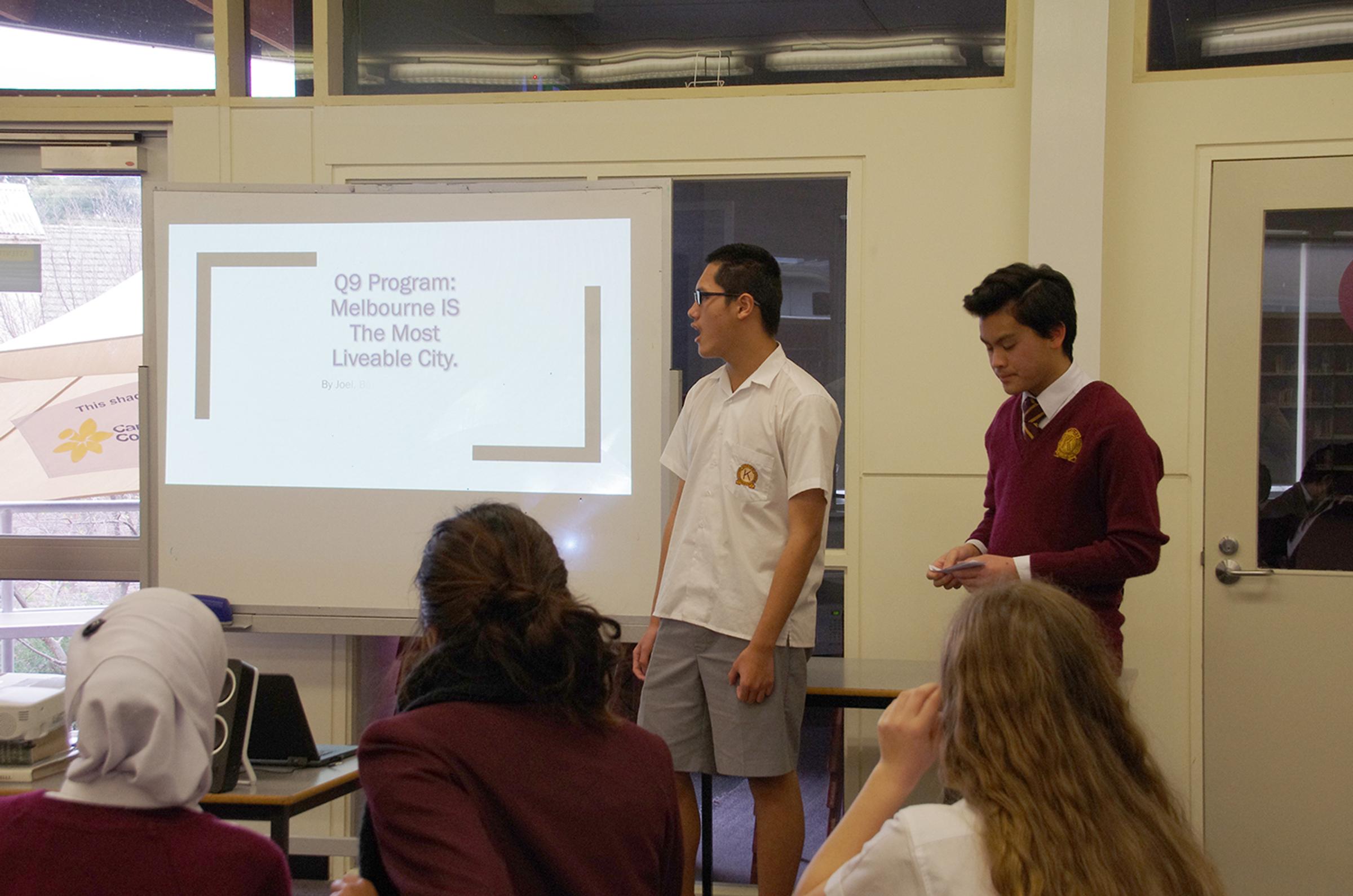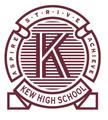Q9

Q9: Melbourne -The World's Most Liveable City
All Year 9 students participated in a cross curricular inquiry project focusing on the liveability of Melbourne. Students travelled into Melbourne’s CBD and visited the State Library of Victoria, The Big Issue and undertook a self-guided Melbourne discovery activity called the ‘Hoddle Waddle’.
Upon return to school they studied aspects of The Economist report, identifying and selecting factors which may threaten Melbourne’s liveability ranking. Students worked in small groups to produce a presentation which was assessed by their peers.
Among the many excellent student responses, Khoi-Phong Doan, Sean McCann, Frank Kang and Mitchell Gaffy of 9E noted that in 2010 Vancouver was ranked the most liveable city in the world because of the scenery, the foods the city had to offer and a number of other things. After this Melbourne became the number one city and has been so every year since. The reason Melbourne took over Vancouver’s spot as number one wasn’t because the quality of living was reduced in Vancouver; it was because the quality of living increased in Melbourne.
The issue of losing the first position in the rankings of the most liveable city was also on the minds of Grace Mcleish, Oncy El Khatib, Will Sullivan and Georgia Ferry of 9G. They asked what might threaten Melbourne’s current position. The students identified the cost of education as a concern. An ever increasing burden on families, in Australia education can cost up to $30,000 per year and over $500,000 overall. In Melbourne, this is more expensive compared to other cities.
The students suggested this is a problem because unemployment rates have been rising over the last decade so for low income families, the cost of education is overwhelming. This lack of money for low wage families can jeopardise the schooling of some young people, who may lose the opportunity to finish their education.
When they consulted experts they found that according to Sarah Parr, an officer at the Australian Education Union, education should be free for everyone regardless of the ability to pay. And also, that Principal Clare Entwisle believes that Melbourne’s education helps to promote Melbourne as a city.
The conflicting points of views highlighted by the students demonstrate that students thought about different perspectives on the questions they researched. Students then reflected on these perspectives and presented their findings in ways that allowed different voices to be heard.
Dan Norton
Leader of Pedagogy and Curriculum





